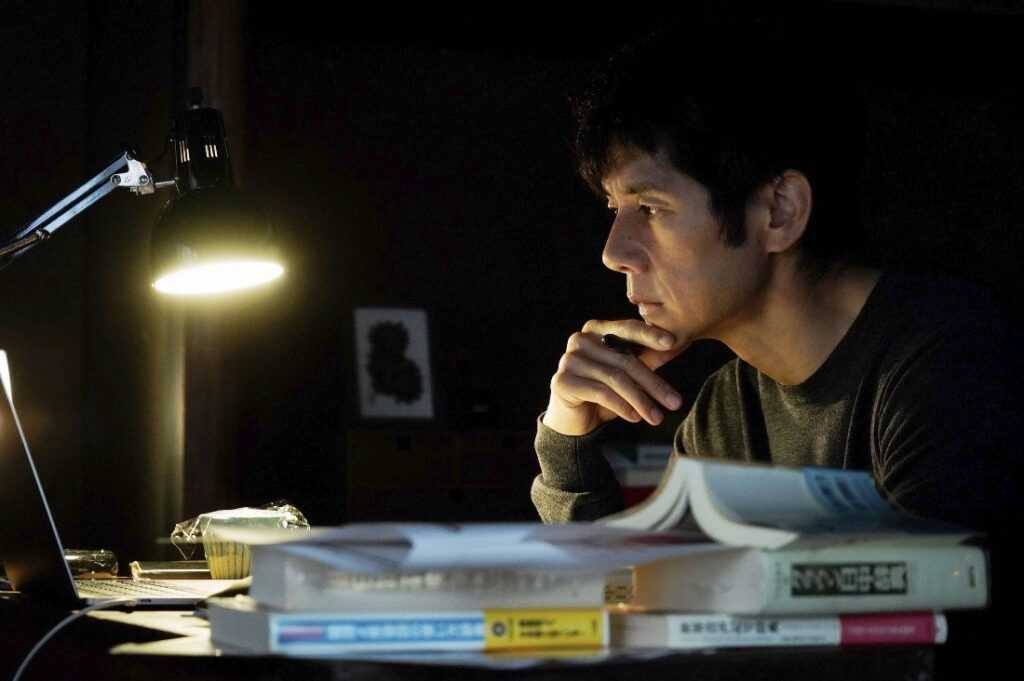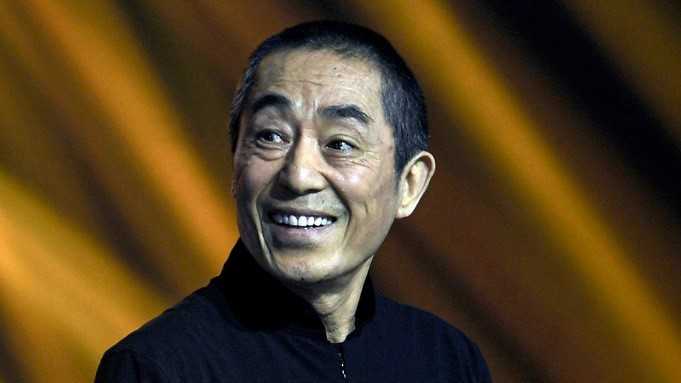 |
 |
 |
| China Film Co. | Mandarin Motion Pictures | New Classics Pictures / Feiyan Entertainment |

After a rocky 2021 in China, Hollywood kicked off 2022 with its first revenue-share studio release of the year in Disney’s lush animated movie Encanto. The musical family film conjured up $3.22 million in the Middle Kingdom. Chinese viewers this week instead put the heartwarming, pandemic-themed patriotic film Embrace Again at the top of the box office with sales of $11 million, pushing its gross to $114 million so far.
For the second year in a row, China ended 2021 as the world’s largest theatrical film market. Total movie ticket revenue in the country clocked in at $7.3 billion, more than double last year’s total and down just 26% from a pre-pandemic high of $9.2 billion in 2019.
Eight of the top 10 biggest films of the year in China were local, led by record-setters The Battle at Lake Changjin ($899 million), Hi, Mom ($822 million), and Detective Chinatown 3 ($686 million). Hollywood’s top earners were Universal’s F9: The Fast Saga ($216.9 million), Legendary and Warner Bros.’ Godzilla vs. Kong ($188.7), and Disney’s Free Guy ($94.8 million). Many of the biggest Chinese hits of the year, such as The Battle of Lake Chongjin, were “main melody” films — propagandistic stories celebrating the glory of China and its leaders — released around the occasion of the CCP’s 100-year anniversary. On the other hand, just 20 revenue-sharing U.S. titles were released in China last year, compared to 31 in 2019.
Gross revenues reached HK$1.21 billion in 2021, compared with just HK$536 million in 2020, the first year of the COVID-19 pandemic. However, last year’s total remained some 37% below the pre-COVID total of HK$1.92 billion in 2019. Hong Kong has significantly recovered from the coronavirus, but the government continues to operate a zero-COVID policy which means strict border and quarantine controls and ongoing local restrictions concerning businesses and social distancing.
The top grossing film of the year was Spider Man: No Way Home, with HK$111 million ($14.2 million), ahead of Shang-Chi and the Legend of the Ten Rings with HK$63.0 million ($8.08 million), and locally-made biopic Anita with HK$61.3 million ($7.86 million).
South Korean cinema last year squeezed out a gain of 14% compared with 2020 – aggregate gross revenues hit KRW584 billion ($488 million) in 2021, earned from 60.5 million ticket sales; in 2020, revenues were KRW510 million ($426 million), earned from 59.5 million spectators.
By scaling back the releases of Korean titles, Korean distributors not only handed the advantage to foreign movies, they also saw their own aggregate gross revenues crash to KRW173 million ($149 million), just half of an already low 2020 figure. In ticket sales terms, only 18.2 million were sold for Korean films.
Korean star, Jeon Do-yeon, who won the best actress award in Cannes in 2007 for Secret Sunshine, will head the cast of newly-revealed Netflix original film Kill Bok-soon. To be directed by Byun Sung-hyun (The Merciless and upcoming Kingmaker), the film is produced by Seed Films, the company behind Kingmaker and Love and Leashes.
Jeon has a stellar body of work including You Are My Sunshine, The Housemaid, 2020’s Beasts Clawing at Straws, and the upcoming Emergency Declaration.
The film, based on a short story of the same title by novelist Haruki Murakami, recently won the top prize and was selected for three other awards by a U.S. film critic society, while it also won the award for Best Screenplay at the Cannes Film Festival last year. The last time a Japanese film won a Golden Globe was in 1960, when Kon Ichikawa’s Odd Obsession won the award for Best Foreign Language Film.

The National Press and Publication Administration (NPPA), which is in charge of licensing video games in China, has not published a list of approved new titles since the end of July. This marks the country’s longest suspension of new game licenses since a nine-month hiatus in 2018 that followed a regulatory reshuffling.
As a result, 14,000 small studios and video gaming-related firms went out of business since July, according to a report on Friday by state-run newspaper Securities Daily. That number signified a considerable acceleration from the 18,000 video gaming firms that shut down throughout 2020. Larger firms such as ByteDance, Baidu, and Tanwan Games trimmed their losses by laying off a number of employees involved in the video gaming segment of their operations.
Earlier this week, federal courts in the U.S. and Germany ordered the group to pay the game developers $10 million in damages. This victory comes after police in China busted a large video game cheating operation last year in a collaborative effort with Tencent Games. The local police called the ring the “world’s biggest” cheating case after a large sum of money and assets, which included luxury cars, were recovered.
At CES 2022, Sony has confirmed the upcoming PS VR2 headset. The headset itself has not been revealed, but some of its technical specs have. The first big exclusive for the headset was also announced: Horizon Call of the Mountain – part of PlayStation’s successful Horizon series of video games (Horizon Forbidden West, a non-VR game, is due out in 2022).
China quietly released a Korean TV series for the first time in six years this week. The move is the latest “symbolic milestone” that a years-long cultural freeze is moving towards a more lenient “détente.” Streamer Mango TV, which is controlled by state-owned Hunan Broadcasting System, released the SBS production “Saimdang: Bitui Ilgi” on its platform Tuesday for viewers eager for a slice of Joseon Dynasty-set fantasy.

Disney will shutter its Hong Kong Disneyland park from January 7 to January 20. Hong Kong is bracing for a fifth wave of infections propelled by the quick-spreading Omicron variant. The territory has reported minimal cases in the past year, but did see its first confirmed local transmission of Omicron on December 31, prompting fears of an outbreak. The local government has also placed a two-week ban on flights from eight countries, including the UK and U.S., as it continues to employ a ‘zero Covid’ strategy.
Acclaimed Chinese director Zhang Yimou will mastermind the opening and closing ceremonies for the 2022 Beijing Winter Olympic Games, state media said Friday. In 2008, Zhang regaled the world with carefully orchestrated seas of performers all drumming, twirling, or chanting in unison at the ceremonies he directed for the summer Games, an event China saw as a key milestone marking its arrival on the world stage.

Nexon is doubling down on its recent move into the filmed content business after acquiring a 38% stake in the Hollywood production company AGBO, run by Avengers: Endgame directors the Russo Brothers, in a deal reported to be worth $400 million. The gaming company, which launched a film and TV division in Los Angeles last year, has also indicated that it is prepared to invest an additional $100 million into AGBO until the halfway point of 2022.
It is the Korean granddad’s turn to steal the Hollywood spotlight this year after hippy grandma Youn Yuh-jung enthralled global audience with her Oscar-winning role in Minari last year, with 77-year-old actor O Yeong-su winning the Golden Globe for Best Supporting Actor in Television for his role in the global smash Netflix series Squid Game at the 2022 Golden Globes.
AMC Networks, the company behind The Walking Dead and owner of several “boutique” streaming services, has acquired anime distributor Sentai along with its streaming service HIDIVE. The acquisition includes the shares held by the Cool Japan Fund – a joint public-private investment fund in Japan that intends to promote Japanese pop culture abroad through strategic investment. This comes just days before the news that Cinedigm has acquired Digital Media Rights, owner of Asian content streaming services including Retro Crush, among others. After a quiet 2021 (as predicted by Interpret) M&A activity early in 2022 has further consolidated the anime streaming space.
According to the most recent numbers from the National Police Agency of Japan, there are currently about 8,500 pachinko parlors in Japan. This is down from over 9,600 around the same time in 2020. 604 parlors are said to have closed down in 2020 alone.

